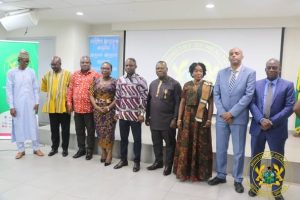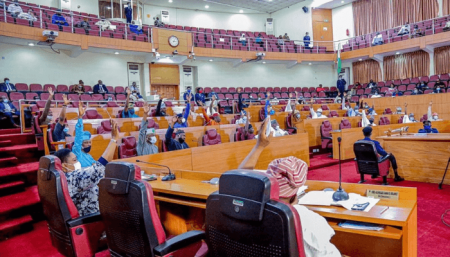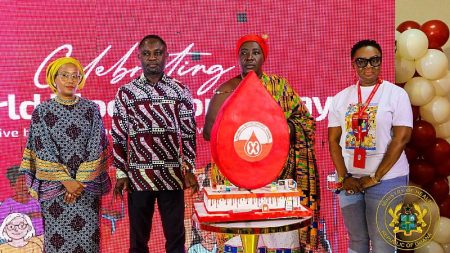Ghana finds itself in a recurring cycle of financial distress, frequently seeking bailouts from the International Monetary Fund (IMF) to stabilize its economy. This pattern of reliance on external financial assistance has raised concerns about the country’s fiscal management and the effectiveness of its institutions in safeguarding public funds. Veteran media personality Kwaku Sintim-Misa (KSM) argues that Ghana’s dependence on the IMF and the imposition of new taxes could be avoided if the government prioritized the recovery of looted public funds. He points to the staggering sums allegedly misappropriated by government officials, suggesting that retrieving these funds would render new taxes unnecessary and significantly alleviate the country’s financial burden. This argument underscores a deep-seated frustration among Ghanaians regarding the apparent impunity enjoyed by those accused of corruption and the perceived inadequacy of efforts to hold them accountable.
KSM’s critique highlights the apparent disconnect between the government’s anti-corruption rhetoric and the tangible results of its efforts. While initiatives like “Operation Recover All Loots” demonstrate an intent to address corruption, KSM argues that the focus should shift from public pronouncements and press conferences to concrete actions aimed at recovering stolen assets. He contends that the Office of the Special Prosecutor (OSP) and the Office of the Attorney General should prioritize investigations, prosecutions, and the retrieval of misappropriated funds, demonstrating a commitment to action rather than mere showmanship. He emphasizes that demonstrable progress in recovering looted funds is crucial for restoring public trust and demonstrating that the government is serious about tackling corruption.
The ongoing prosecutions of former public officials, including the case against the former Director-General of the National Signals Bureau, Kwabena Adu-Boahen, and his wife, who are accused of misappropriating over GHC49.1 million, and the investigation into the GHC548 million National Service Secretariat ghost names scandal, are significant developments in Ghana’s fight against corruption. These cases represent an opportunity for the government to demonstrate its commitment to holding corrupt officials accountable and retrieving stolen public funds. However, KSM stresses that these prosecutions must lead to tangible results, with recovered funds being returned to the national treasury. The public needs to see evidence of concrete action and successful prosecutions, not just investigations and accusations.
KSM’s call for urgent action reflects a broader public sentiment that the fight against corruption needs to be more than just symbolic gestures. The public is demanding accountability and tangible results, measured in the recovery of stolen funds and the prosecution of those responsible. The recurring need for IMF bailouts underscores the urgency of addressing corruption and plugging the leaks in public finances. The perception that substantial amounts of public funds are being siphoned off through corrupt practices undermines public trust in government institutions and fuels cynicism about the government’s commitment to addressing the issue.
The financial implications of unchecked corruption are substantial. The alleged misappropriation of millions of cedis deprives the country of resources that could be used for essential services such as healthcare, education, and infrastructure development. This diversion of funds perpetuates a cycle of underdevelopment and reinforces the need for external financial assistance. By effectively recovering looted funds, the government could significantly reduce its reliance on external borrowing and invest in critical sectors that contribute to economic growth and improve the well-being of its citizens. This, in turn, would strengthen the country’s financial position and reduce the need for austerity measures often associated with IMF bailouts.
The effectiveness of Ghana’s anti-corruption efforts will depend on the political will to pursue cases diligently, strengthen institutions responsible for combating corruption, and create a culture of accountability within the public sector. KSM’s call for action is a reminder that the fight against corruption requires more than just rhetoric; it requires decisive action, transparent processes, and tangible results. The government must prioritize the recovery of stolen assets and demonstrate its commitment to holding corrupt officials accountable, not only to appease public sentiment but also to ensure the responsible stewardship of public funds and promote sustainable economic development. The success of initiatives like “Operation Recover All Loots” will be judged not by the number of press conferences held, but by the amount of stolen funds recovered and the number of successful prosecutions secured.














